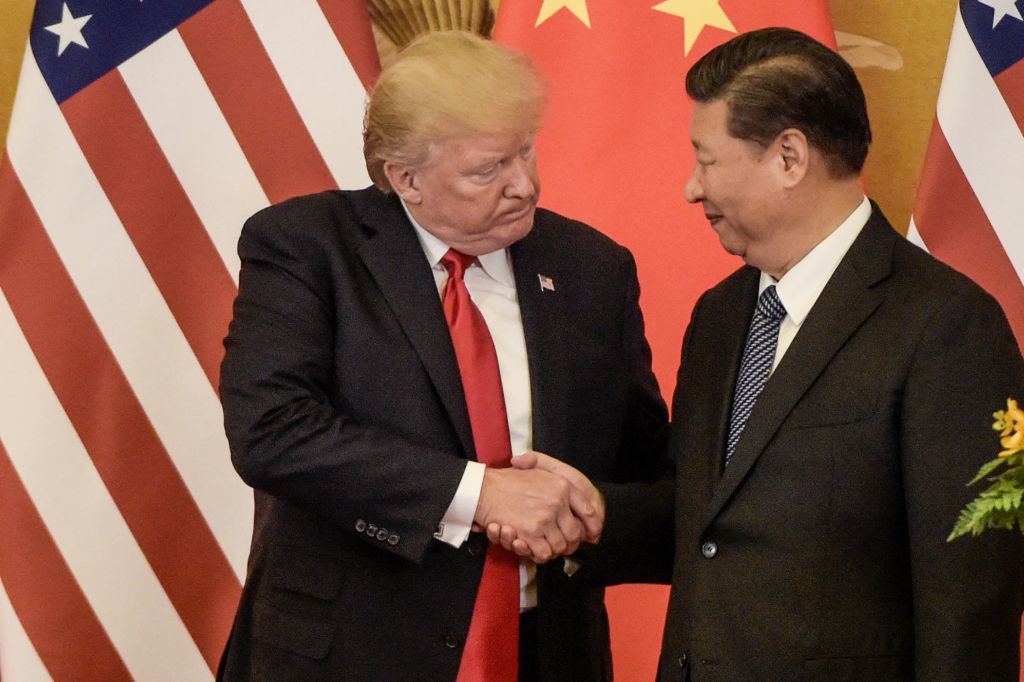Late last week, Donald Trump’s former national security advisor John Bolton sparred with former GOP presidential candidate Vivek Ramaswamy over whether the US should use military power for global security. The debate has highlighted the contrast between the foreign policy ideals of the old and new Right ahead of an election in which voters are keenly aware of heightened geopolitical instability.
“The calculus in Beijing is, if America and the West won’t defend against an unprovoked aggression in Europe itself, we will never come to the side of Taiwan,” Bolton argued at a debate hosted by the conservative Steamboat Institute.
His younger counterpart agreed that a Chinese takeover of Taiwan would be “a foreign policy disaster”, but claimed that defending Ukraine actually weakened the US in relation to Beijing. “China doesn’t reason based on moral authority: they reason based on hard power. And our hard power with respect to China is weaker when we’re involved in other foreign conflicts that don’t advance our interests,” Ramaswamy said, citing recent delays in weapons shipments to Taiwan and a sparse US naval presence in the Pacific.
The exchange demonstrated the growing rift on the American Right over China policy. The Trump-aligned populist Right has coalesced around tariffs as an answer to China’s dominance and aggression. Beneath the surface, however, tensions are brewing over how the US should ensure the safety of Taiwan from a Chinese invasion.
America’s longstanding Taiwan policy has been one of strategic ambiguity, meaning the US does not make pronouncements about how it will respond if China invades the island. But Republicans are now divided over whether to maintain this policy and the extent to which the US should be clear about its intentions to arm and support Taiwan.
During his presidency, Donald Trump was a hawkish defender of Taiwan, sending American fighter jets to the island for the first time since 1992 and speaking directly with its president, the first time such diplomatic ties had been established since 1979. Recently, though, the GOP candidate has become more dovish. He drew condemnation over the summer after he avoided directly answering whether he would defend the island, and then called for Taiwan to pay the US for defence.
“Taiwan should pay us for defence,” Trump said in June. “You know, we’re no different than an insurance company. Taiwan doesn’t give us anything.” The comments resembled those he made about Nato in February, in which he encouraged Russia “to do whatever the hell they want” to member countries which don’t meet their financial obligations.
The contrast between Ukraine and Taiwan is a recurring theme on the populist Right. Critics of US aid to Ukraine tend to be more hawkish on China, citing the potential competition between Ukraine and Taiwan for US weapons and other resources. Trump’s running mate J.D. Vance has endorsed strategic ambiguity, and recently argued that American support for Ukraine puts Taiwan in a difficult position due to limited resources. This stance is at odds with the school of former secretary of state Mike Pompeo who recently argued that the threat of China could not be separated from that of Russia, Iran and North Korea. On this “axis of evil” conception, it is argued that defending Ukraine is akin to defending Taiwan from the same enemy.
Others, meanwhile, have suggested that Taiwan is not doing enough to ensure its own safety and have even cast doubt on the strategic significance of the island. Elbridge Colby, a former defence advisor to Trump, wrote in the Wall Street Journal last month that Taiwan was “very important” for preventing Chinese hegemony over Asia, “but not essential”. He added: “To make Taiwan defensible, America must focus on preparing for Taiwan’s defence and Taiwan must do more.”
Senator Tom Cotton has taken an even firmer stance, calling for the US to “change our Taiwan policy from ‘strategic ambiguity’ to ‘strategic clarity’” and writing: “the United States will come to the defence of Taiwan in the event of a Chinese attack”. Senator Thom Tillis also called for an end to strategic ambiguity.
The question of military intervention in Taiwan is staved off for the time being, not only because strategic ambiguity obscures politicians’ true thoughts on the matter but because of American reliance on China, according to Chris Griswold, policy director at American Compass. Because the US imports pharmaceuticals, industrial equipment, rare earth minerals and military supplies from China, direct confrontation is currently not a realistic option.
“If we are radically dependent on China for economically and militarily critical goods — and right now, we are — then that severely constrains [our] options,” Griswold told UnHerd. “At a certain point, you can’t even fully have the debate.”











Join the discussion
Join like minded readers that support our journalism by becoming a paid subscriber
To join the discussion in the comments, become a paid subscriber.
Join like minded readers that support our journalism, read unlimited articles and enjoy other subscriber-only benefits.
Subscribe